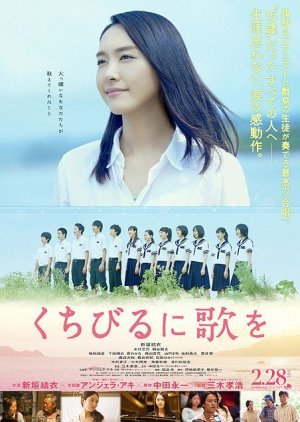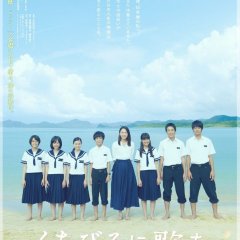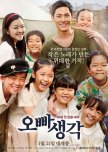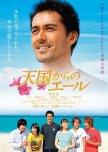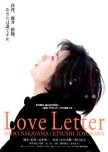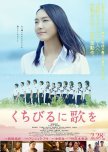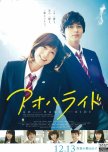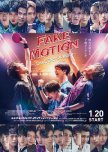 J-Drama National Tour - Part 2
J-Drama National Tour - Part 2 - Italiano
- 中文(台灣)
- English
- magyar / magyar nyelv
- Titolo Originale: くちびるに歌を
- Conosciuto Anche Come: Kuchibiru ni Uta o , Song on Lips , 再會吧! 青春小鳥
- Regista: Miki Takahiro
- Sceneggiatore: Mochiji Yukiko, Toyone Yuichi
- Generi: Musica, Gioventù, Drama
Cast & Ringraziamenti
- Aragaki Yui Ruolo Principale
- Tsunematsu YuriTsunematsu NazunaRuolo di Supporto
- Shimoda ShotaKuwahara SatoruRuolo di Supporto
- Aoi WakanaSekiya ChinatsuRuolo di Supporto
- Shibata KyokaTsuji EriRuolo di Supporto
- Yamaguchi MayuHasegawa KotomiRuolo di Supporto
Recensioni

Soapy Middle-school Story Based on a Song
Three years into a very successful career as singer-songwriter in 2008, Angela Aki released her 8th single "Tegami (Haikei Jūgo no Kimi e)" or "Letter: Dear 15-yearold Me". The song was then used in the following year as competition song in a national competition for middle-school choirs and NHK produced four documentaries following Aki to various middle-schools as the children rehearsed the song for the competition. One of those documentaries served as inspiration for a 2011 novel by Nakata Eiichi, a pen-name of the extremely prolific writer Otsuichi, and that novel is the basis for this 2015 film. The song itself has since become the standard graduation song for middle-school graduation ceremonies in Japan.The story is set in a small island town near Nagasaki, and centers around three characters: third-year student Nazuna who is the captain of the choir club, Kashiwagi-sensei who was a well lauded classical pianist and who has returned to the island to serve as a substitute teacher for a year and first-year student Satoru. The film slowly reveals the backstories of these three characters as Kashiwagi disrupts the old way the choir was run by allowing boys with all their cooties to join the group. All three of the characters have very soapy pasts and the plot is overly reliant on convenient plot timings for events that otherwise would have little chance of being conincident. But the film does build to a lovely climax at the provincial choir competition in Nagasaki City with a truly moving performance of Aki's song by the choir.
If you love the song, then this film is probably a must-watch. For the more general viewer, the film is still quite good with some excellent performances by the three main actors as their characters go through a year of growth which does reflect well the dialogue within the lyrics of the original song.
Questa recensione ti è stata utile?

everything serves a purpose
Perhaps this is less a youth film and more for those who are older and have been broken by life. Will leave it to young people to decide how well it works for them.Its symbolism is well-integrated - the sound of the foghorn, signalling departure but also moving forward, and its corresponding note on the piano. Where each of the main characters tends to go - Nazuna seeking out high places like the school roof, Satoru walking home with his brother, Kashiwagi lost in grief along the low shore. Voices silenced by self or others, or death, and what comes from being heard. Or someone saying those lost words. Everything in this film serves a purpose.
Yes, the concentration of situations they're in tend towards melodramatic, but each of them alone is realistic and there is plenty of balance in small details of daily life for the students. And yes, the timing is convenient. That does tend to happen in films. It's all serving the larger purpose. The key to good melodrama is always in the emotions, are they realistic and accurate for the situation. In that, in the tender vulnerability of the children, in Aragaki's understated portrayal of grief, the importance of being heard as one's authentic self, in the power of connection to make life just a bit easier, this beautiful, gentle, hopeful film rings true.
Questa recensione ti è stata utile?

